
Liverpool is the second and final studio album by British band Frankie Goes to Hollywood, released in October 1986. Produced by Stephen Lipson and mixed by Trevor Horn, the album showcases a heavy rock sound in contrast to the synth dance tone found in its predecessor, Welcome to the Pleasuredome. The recording sessions would be marred by the radical change in musical direction creating tension within the band.

Backless is the sixth solo studio album by Eric Clapton, released in November 1978. Produced by Glyn Johns, and released by RSO Records, Backless reached no. 8 on the pop charts. While the single "Promises" only reached no. 37 on the UK Singles Chart, it was a much bigger success in the US, reaching no. 9 on the Billboard Hot 100. The follow-up single, "Watch Out for Lucy", was the B-side of "Promises", but reached no. 40 on the Billboard 100 on its own merit. Later in 1980 "Tulsa Time" was #30 on the Billboard 100 with the 1977 song "Cocaine" as B-side. It was Clapton's last studio album to feature his longtime bassist Carl Radle, who died in 1980.
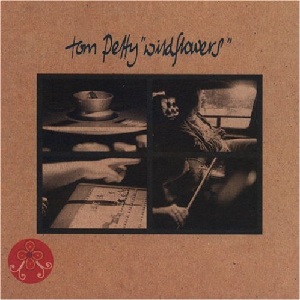
Wildflowers is the second solo studio album by American musician Tom Petty, released on November 1, 1994. The album was the first released by Petty after signing a contract with Warner Bros. Records and the first of three albums produced by Rick Rubin. The album was certified 3× platinum in the United States by the Recording Industry Association of America.
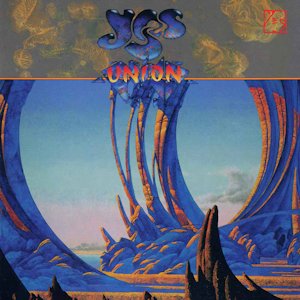
Union is the thirteenth studio album by English progressive rock band Yes, released on 30 April 1991 by Arista Records. Production began following the amalgamation of two bands that featured previous and then-current members of Yes: Anderson Bruford Wakeman Howe (ABWH), consisting of vocalist Jon Anderson, drummer Bill Bruford, keyboardist Rick Wakeman and guitarist Steve Howe, and Yes, comprised at that time of bassist and vocalist Chris Squire, guitarist and vocalist Trevor Rabin, keyboardist Tony Kaye and drummer Alan White. The eight musicians signed with Arista and a combination of unfinished tracks by both groups were selected for Union. The album's sessions were problematic from the start, including disagreements between some of the musicians regarding the "merger" of the two bands, strained relations during the recording process, and decisions by the production team of Anderson and producer Jonathan Elias to bring in session musicians to re-record parts that Wakeman and Howe had originally completed.
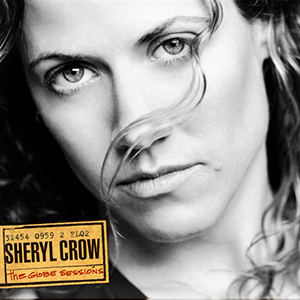
The Globe Sessions is the third studio album by American singer-songwriter Sheryl Crow, released on September 21, 1998, in the United Kingdom and September 29, 1998, in the United States, then re-released in 1999. It was nominated for Album of the Year, Best Rock Album and Best Engineered Non-Classical Album at the 1999 Grammys, winning the latter two awards. The Globe Sessions reached No. 2 on the UK Albums Chart, while peaking at No. 5 on the Billboard 200 chart, achieving US sales of two million as of January 2008. The album was recorded at and named for the sessions recorded at Globe Recording Studio in New York owned by Robert FitzSimons and Tracey Loggia.

Anderson Bruford Wakeman Howe is the only studio album by English progressive rock band Anderson Bruford Wakeman Howe, released in June 1989 on Arista Records.

Keys to Ascension is the fourth live and fifteenth studio album by English progressive rock band Yes, released as a double album in October 1996 on Essential Records. In 1995, guitarist Trevor Rabin and keyboardist Tony Kaye left the group which marked the return of former members Steve Howe and Rick Wakeman, thus reuniting them with vocalist Jon Anderson, bassist Chris Squire, and drummer Alan White, a line-up that had last performed in 1979. The group relocated to San Luis Obispo, California to make a new album and to promote their reunion with three shows at the Fremont Theater, in March 1996. Keys to Ascension features half of the live set from the 1996 shows and two new studio tracks which marked a return to Yes writing longform pieces.
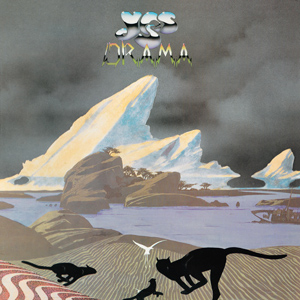
Drama is the tenth studio album by the English progressive rock band Yes, released on 18 August 1980 by Atlantic Records. It was their only album to feature Trevor Horn on lead vocals and the first with Geoff Downes on keyboards. This followed the departures of Jon Anderson and Rick Wakeman after attempts to record a new album in Paris and London had failed. Drama was recorded hurriedly with Horn and Downes, as a tour had already been booked before the change in personnel. The album marked a development in Yes' musical direction, combining the band's progressive signature with Horn and Downes' new wave sensibilities.

Tormato is the ninth studio album by English progressive rock band Yes. It was released on 22 September 1978 on Atlantic Records, and is their last album with singer Jon Anderson and keyboardist Rick Wakeman before their departure from the group in 1980. After touring their previous album Going for the One (1977), the band entered rehearsals in London to record a follow-up. The album was affected by various problems, such as internal disputes over the direction of the music and artwork, and the departure of engineer Eddy Offord early into the sessions, resulting in the group producing the album themselves.

The Six Wives of Henry VIII is the second studio album by English keyboardist Rick Wakeman, released in January 1973 on A&M Records. It is an instrumental progressive rock album with its concept based on his interpretations of the musical characteristics of the wives of Henry VIII. After signing with A&M as a solo artist, Wakeman decided on the album's concept during a tour of the United States with the progressive rock band Yes. As he read a book about the subject on his travels, melodies he had written the previous year came to him and were noted down. The album was recorded throughout 1972 with musicians from Yes and The Strawbs, the group Wakeman was in prior to Yes, playing on the album.
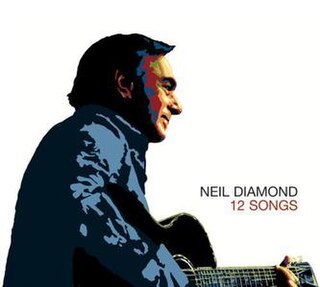
12 Songs is the twenty-sixth studio album by Neil Diamond, released in 2005. It was his first studio album since 2001's Three Chord Opera. It was produced by Rick Rubin.

Wave is the fourth studio album by Patti Smith, and the third and final album where the Patti Smith Group is billed. It was released on May 17, 1979, by Arista Records. Produced by Todd Rundgren, the album continued the band's move towards more radio-friendly mainstream pop rock sound. Wave garnered a mixed reception from music critics and was less successful than its predecessor, Easter (1978). However, the songs "Frederick" and "Dancing Barefoot" both received commercial airplay. Following the album's release, the band disbanded, and frontwoman Patti Smith pursued a solo career nine years later with Dream of Life (1988).

Bloody Tourists is the sixth studio album by the English rock band 10cc, released worldwide by Mercury Records and in North America by Polydor Records in September 1978. Recorded at Strawberry Studios South in Dorking, the album was produced by Eric Stewart and Graham Gouldman.

Fragile is the fourth studio album by the English progressive rock band Yes, released on 12 November 1971 by Atlantic Records. It was the band's first album to feature keyboardist Rick Wakeman, who replaced Tony Kaye after the group had finished touring their breakthrough record, The Yes Album (1971).
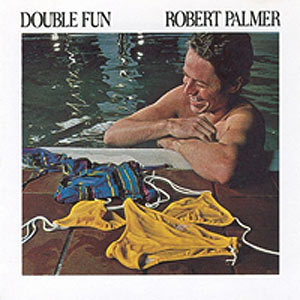
Double Fun is the fourth solo album by Robert Palmer, released in 1978. Self-produced, this pop album is influenced by multiple genres including blue-eyed soul, disco and heavy rock but maintains an overall consistency of production which holds it all together. The album peaked at number 45 on the Billboard Pop Albums chart in 1978, his highest rank up to that point, and includes a top 20 hit, "Every Kinda People".

Home Before Dark is the twenty-seventh studio album by American singer-songwriter Neil Diamond. Released on May 5, 2008, it was the artist's second album for American Recordings.

No Earthly Connection is a studio album by English keyboardist Rick Wakeman, released in April 1976 on A&M Records. After touring worldwide in late 1975 in support of his previous studio album The Myths and Legends of King Arthur and the Knights of the Round Table (1975), Wakeman retreated to Herouville, France to record a new studio album with his rock band, the English Rock Ensemble. He based its material on a part fictional and non-fictional autobiographical account of music that incorporates historical, futuristic, and science-fiction themes.

Rick Wakeman's Criminal Record is a studio album by English keyboardist Rick Wakeman, released in November 1977 on A&M Records. After touring his previous album No Earthly Connection in August 1976, Wakeman rejoined the progressive rock band Yes as they recorded Going for the One (1977) in Switzerland. When recording finished, he started work on a new solo record which took form as a keyboard-oriented instrumental album similar to that of his earlier album, The Six Wives of Henry VIII (1973), and loosely based on criminality. Several guest musicians play on the record, including Chris Squire and Alan White of Yes, percussionist Frank Ricotti, and comedian Bill Oddie on vocals.

Mojo is the twelfth studio album by American rock band Tom Petty and the Heartbreakers, released on June 15, 2010 on CD and June 29 on Blu-ray. It was Petty's first album with the Heartbreakers in eight years. Mojo debuted at No. 2 on the U.S. Billboard 200, selling 125,000 copies in its first week of release. The album was also the band's first full album with bassist Ron Blair since 1981's Hard Promises, as he played on only two tracks on the previous Heartbreakers album, The Last DJ.

Fly from Here is the twentieth studio album by the English progressive rock band Yes. It was released on 22 June 2011 by Frontiers Records, and is their only album featuring lead vocalist Benoît David and keyboardist Oliver Wakeman. Yes reformed in 2008 after a four-year hiatus with a line-up of David, Wakeman, bassist Chris Squire, guitarist Steve Howe, and drummer Alan White. The band prepared material to record for Fly from Here during breaks in touring in 2010 and 2011, during which they enlisted former Yes frontman Trevor Horn as producer. After songs contributed by Wakeman were scrapped in favour of expanding the song "We Can Fly" into a 24-minute six-part "Fly from Here" suite, the band replaced him with former Yes keyboardist Geoff Downes as he co-wrote much of the new material.




















